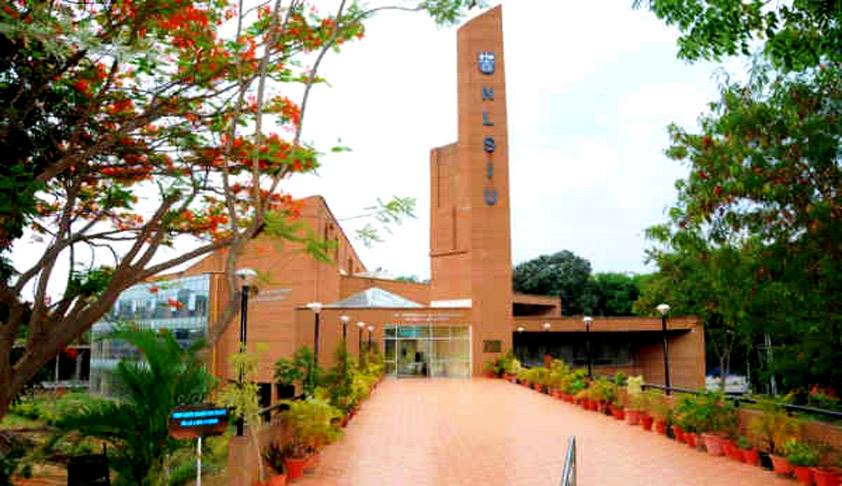This article was written by Apurva Shukla (Batch of 2016) who is also the current SBA Vice-President.
Like an ideal student in an ideal college, my life had been focused mainly on myself and whatever activities I wished to pursue in Law School. Like most, my interactions with organs of the university were limited to whenever I wanted something to be done for my own ends. However, things changed this year and I was forced to look at our university from a different perspective.
I will focus in this article on how, in my experience, I have felt the absence of institution building processes at our college and why perhaps it’s exigent to discuss it.
I must first define what I believe an institution is. An institution is formed when some people with a somewhat unified purpose come together and share a vision for how that purpose will be realised. A successful institution creates a self executing framework which is an engine to the ideas underpinning its existence. It runs on the effort of people, and yet, continues to live beyond them. It disentangles challenges of the present by designing structures so that it can focus its energy on becoming better in other ways. So a simple example in our context would be to have an exchange policy drafted after adequate consultation with all relevant stakeholders and then to focus our attention towards making a better equipped exchange office or getting better colleges as our exchange partners. That being said, simply declaring a vague common vision may not be enough for the creation of an institution. A true attempt must lie in turning desired institutional values into habits that members of that institution imbibe into their daily lives.
Per this definition, perhaps NLS is not an institution and sadly not even remotely engaged in any effort to become one. It is not uncommon for us to experience random ad hoc executive actions aimed entirely at short term gain. Faced with these we are forced to re invent the wheel or, as in many cases, entirely dismantle them. I am willing to share the blame for these faults as well. As the SBA, we have often discarded larger institutional aims and sought reliefs centered solely around convenience. In the case of Turnitin, which has the potential to usher great administrative convenience, we have stayed silent about its proper usage because it requires us to perhaps work much harder on our projects. As students, we have often demanded legitimate rights such as medical make-ups or attendance condonation but rarely have we engaged in united policy making or rule drafting for such demands. We experience the sweet taste of success of such demands in the short term, but rarely do we ever push to make them institutional. What we overlook is that these demands are often satisfied with executive discretion with little guarantee that they would continue. This puts all of us in a place where we are forced to engage in the most futile and energy expending struggle to request such benefits year on year, often with a misplaced focus on ‘legitimate expectation’.
Our affinity to make demands based on short term convenience has a deep impact on NLS as an institution. The instances when we have turned away good faculty because of our concerns regarding excessive workload (In re Mr. Murali Neelakantan’s course being offered and turned down thrice) or poor grades (In re a vote against having Sitaram Kakarala take a portion of the Political Science II course) definitely reflects the kind of momentary gain we seek. The price of placing grades over knowledge is not concentrated to any one batch but to an institution. Even outside academics, most of our committees and student bodies are run with little thought beyond an academic year. A recent trend has been to offer lengthy complaints on online media about everything wrong in college, but such passion has not found its way to the empty classrooms during one credit courses and guest lectures. A recurring question posed to me during the time I stood for SBA elections was how I proposed to break student apathy. My answer used to be a carefully constructed set of works which used to change form depending on who would ask the question. Diplomacy aside, I think the true answer to this question is ‘if you seek, you do’. That’s the only manner in which this apathy can be broken.
The fault is only partly ours. Rule making and a clear outline of policy happens when organs within the university administration are accepting of change and willing do their job perfectly. It would be unfair to place responsibilities on students in place of the university administration doing its job with efficiency and a clear eye for the future. I believe we need to think deeply behind the causes of not having clarity or focus on how basic organs work, despite our nearing 30 year existence. However, ultimately as students these factors are often out of our control. Thus it becomes imperative to understand our role and ability in areas we can control. When accorded with all the responsibility of making changes, a great degree of power vests with us. We ought to bring proposals to ensure progressive change, carry collaborative lobbying efforts, interact with key stakeholders in the administration and faculty on civil terms and finally support these ‘just institutions’ when they are created, morally or otherwise.
Would anyone be against institution building processes? I highly doubt it and think that it’s mostly about lack of thought being given to this issue than any the active prevention of the pursuit of this endeavor.
Any institution works well because there is a delineation of roles and everyone does their job. At the moment, there is very little clarity within the students as to whether Examination Department’s role is that of a secretariat to the Undergraduate/Post-Graduate Councils or whether its role extends to maintenance of academic standards. To illustrate, the decision on whether a makeup needs to be supplemented by sufficient proof is not in the rules and is simply a requirement imposed by an executive decision. The role of the Exam Department should ideally be limited to confirming the veracity of the makeup against the corresponding hour missed in the attendance register and the signature of the faculty advisor. In the ideal design of an institution, it is the faculty advisor who should demand proof. That not only reduces administrative costs but also puts the correct actor with presumed domain expertise in charge of this particular action.
From a design perspective, would it not be simpler to eliminate attendance marks altogether and keep attendance requirements at 70%, as stipulated by BCI? This removes the annoyance of makeups, allows students greater academic flexibility, treats everybody as mature adults and enormously reduces administrative burden. For the exceptional scenarios of people falling below 70% in their attendance have a uniform, carefully considered and planned procedure. Make the perils of being in such a situation clearly known and its implications strict. Establish to me how it deteriorates academic standards and you have my 1000 bucks. An ideal system should not conflate strictness of law with administrative harassment.
There are several other issues on our campus which call for our attention. It ought to be fairly evident to anyone that the three academic programs at our university and students studying therein are not integrated one bit. As our small college is expanding its footprint and assuming a more university like form, integration is necessary and one small way that could be done is to revise our housing policy. Let’s remove this weird hostel separation requirement we have at present and let all students live together. What better way to learn from our more mature (and possibly wiser) counterparts in the MPP and LLM program than to share a room on the same hostel floor? My point here is simply that, regardless of your opinion on the outlined policy, discussions like these are crucial but sadly, absent at present. Such discussions are unique as they are geared towards achieving additionality and increasing value to our university experience and not just putting bandages over bruised wounds.
Similarly, should it not be the prerogative of the official IT Committee in college to undertake a study on what college network requirements are (not hard at all) and take responsibility to bring that change? Students are more than willing to provide all assistance, but ultimately the call on all matters lies with the various official committees. It is often only due to passivity that one is forced to centralize decision making with the Vice-Chancellor.
I believe a larger issue is one of lack of communication and coordination between organs of our university.
One significant lesson I learnt this year is the crucial role of collaboration in any policy making and execution. Any reform, be it concerning infrastructure upgradation or academic innovation, requires a committed team behind it. A team that constantly engages with the problem it is tasked to solve. One of the biggest challenges Nayan and I face daily is getting bodies within the administration to meet, take responsibility for a problem and collaborate with us to solve it.
Communication of reasoning behind certain decisions, such as keeping improvement examinations in abeyance or a pre-communication regarding stricter enforcement of simple rules like project submission deadlines, on a public forum like ugstudents is genuinely hard and perhaps scary, but it ensures smarter and reasoned decision making. It leads to a higher degree of compliance as information asymmetry is reduced and a variety of views are pondered over. Moreover, frank communication leads to an increase in trust between stakeholders. There is a sentiment at the moment amongst the students that Examination Department and the Undergraduate Council are out to make their lives harder. These organs believe that students play a series of devious stratagems and will do all they can to reduce academic workload. Both perspectives are not true and an exchange of individual aspirations and restraints is the only way to break this suspended state of apathy.
It’s easy to believe that a lot of things are amiss. When things have been directionless for sometime, we fall prey to terrible institutional habits and decay. This doesn’t mean they cannot be changed. We should not forget that we have a far more liberal structure than most other universities and our focus should be on becoming better. What we require is strong top-down commitment to this mission, as institutional interest will need to be prized over narrow individual interest, and more transparent communication between all parties.
To borrow a few lines from Obama’s most recent State of the Union Address,
“Progress is not inevitable. It is the result of choices we make together. And we face such choices right now. Will we respond to the changes of our time with fear, turning inward as a nation, and turning against each other as a people? Or will we face the future with confidence in who we are, what we stand for, and the incredible things we can do together? So let’s talk about the future.”


Comments